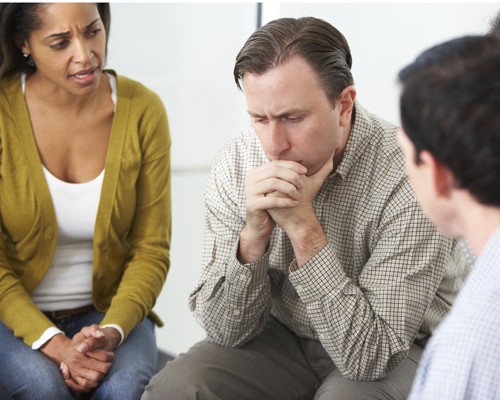
Support groups are a great recovery tool, and one that you’ll probably be using from your first week of rehab. Attending a support group will continue to be a strength for you as you progress on your journey, and many people continue to attend some type of addiction support group for the rest of their life.
Support groups will be provided for you during your time in residential rehab, and you’ll probably continue with a group at the rehab center for a while as part of your aftercare. There are lots of other support groups available in your community that will lend you additional support, complement your aftercare program, and give you some structure during your week.
Table of Contents
Types of Support Groups
There are many types of support groups to meet the needs of all different kinds of individuals. Twelve-step programs like Alcoholics Anonymous and its offshoots are the most common, and the easiest to find, no matter what city you’re in. Twelve-step programs are great because they give addicts camaraderie and perspective, as well as a clear set of steps they can take to continue to improve.
If a 12-step program isn’t your thing, or if there’s not one available in your area, there are other options as well. Smart Recovery has a pretty widespread support group network, and online forums and groups can be a great addition to your in-person group.
Finding a Niche
Support groups are often just open-forum groups anyone can join. There’s no fee associated with them for the most part, and admission is completely open. There are some subset support groups, however, that are meant to meet the needs of certain types of people.
If meeting in a group of many people isn’t something you’re comfortable with, there are groups with limited size, like 4 or 5 people, that will cover the 12 steps, or other group topics, in a smaller setting. Other specialized groups might cater to a specific age group or gender. If you feel like you need a specific kind of support, this type of group might work best for you.
Making Changes
Finding the right support group can take a little time for many people. You don’t need to feel tied to a group if the chemistry isn’t working for you, so don’t be afraid to try a few different ones out before deciding.
Even if you find a group you like, but feel like you need a change down the line, that’s okay. Different support groups will offer a fresh perspective and added support. You can even attend more than one if that’s what makes you feel better. The bottom line is that you need to find a place where you can share your experiences and thoughts with others, gain a new perspective, and feel good about yourself.
Dave Callister graduated from the University of Utah with a Bachelor’s Degree in Psychology and a Master’s Degree in Social Work. Dave has over ten years of experience working with individuals with substance abuse issues in multiple capacities. Dave has a passion for helping individuals and families who suffer from the disease of addiction.
Steps to Building a Support Network
Addiction recovery is a long and often difficult process, and it’s one we shouldn’t have to go through alone. Creating a support network as you look to move past addiction struggles is a vital part of the process, and at Renaissance Ranch, our addiction treatment program includes strong, solid support chains.
Both for those recovering from addiction and for friends or loved ones helping with recovery, here are some steps to take to form a strong, supportive network during recovery.
Don’t Be Afraid to Ask
In many cases, those struggling with addiction won’t know how to ask for help – or will fear doing so. They also may simply not think they have a problem in the first place, which can lead to issues with denial.
Asking for help, however, is the first and most vital step toward recovery. This can be to a friend, family member or even to medical professionals. Asking for help is a sign of strength and awareness, a strong first step to recovery.
Determine Expectations
Once the people in a support system have been identified, deciding what’s expected from this network is next up. Communicate openly with people in your support network about what you’re hoping to achieve and what you want out of the relationship, and look to surround yourself with people who will allow you to reach these goals in a positive way.
Attend Regularly
Recovery can feel like an isolated process, and sometimes you’ll need to separate from family or friends to improve. This is where group therapy and support meetings come in – they’re a great outlet for people to connect with others who have had similar experiences and struggles. Even if you have to miss a week or two here or there, continue to attend these sorts of resources as often as possible to stay on the path to recovery.
Life-Altering Events
We can’t love others until we learn to love ourselves, and with this theme in mind, it’s best to avoid the major life-altering events you have control over while in the main stages of recovery – namely relationships. Romantic relationships can bring added stress, which may involve dangerous relapse triggers. Also consider other big life events you can control, such as a new job – if possible, limiting these events will allow you to focus on what’s most important.
Patience
No matter what, always be patient – time can be one of the most effective members of your support system. Addiction wasn’t created overnight, and the recovery process won’t be completed that way either. Use the people in your support group to help you manage the tougher times and savor the good ones.

